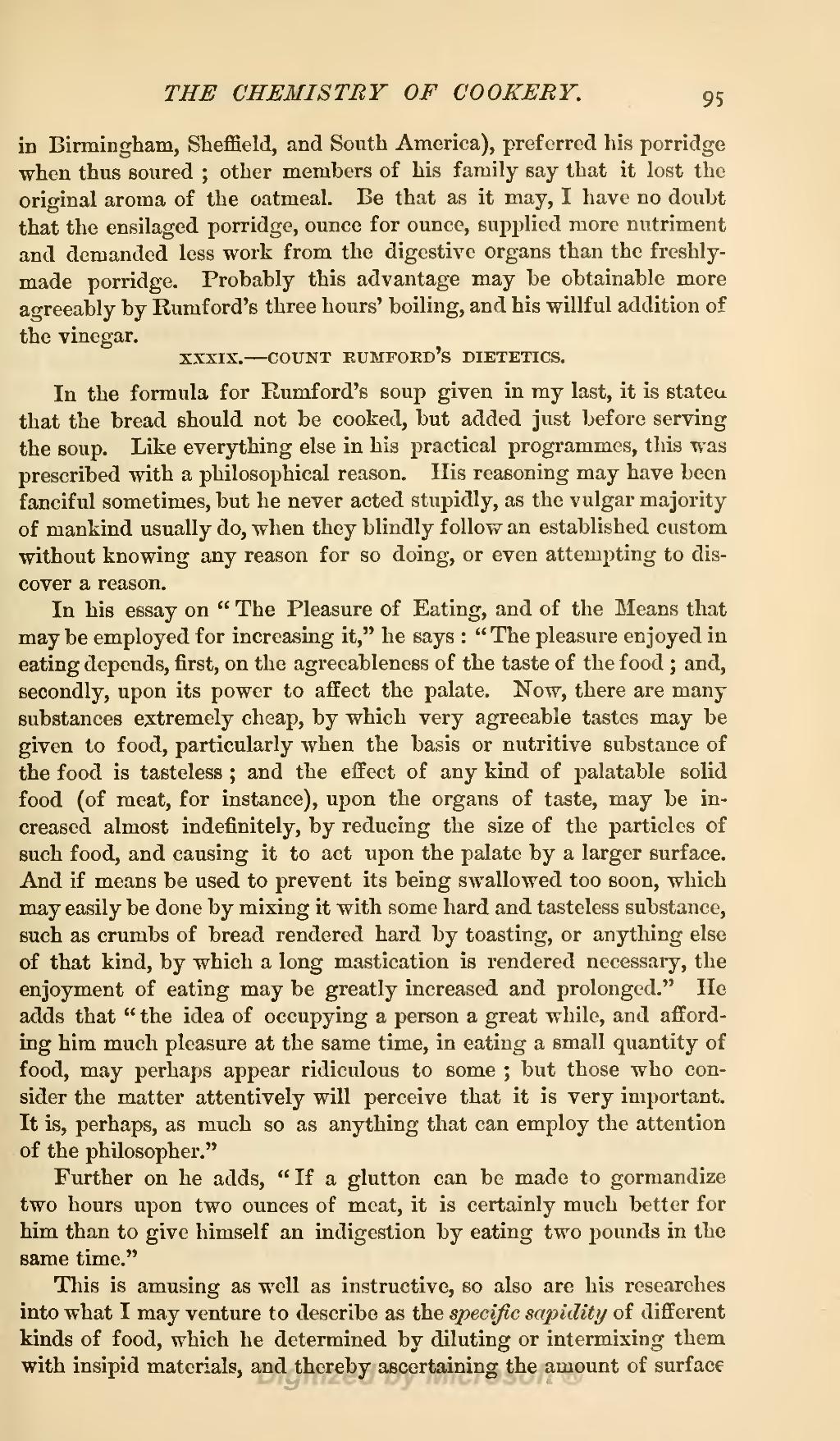in Birmingham, Sheffield, and South America), preferred his porridge when thus soured; other members of his family say that it lost the original aroma of the oatmeal. Be that as it may, I have no doubt that the ensilaged porridge, ounce for ounce, supplied more nutriment and demanded less work from the digestive organs than the freshly-made porridge. Probably this advantage may be obtainable more agreeably by Rumford's three hours' boiling, and his willful addition of the vinegar.
XXXIX.—COUNT RUMFORD'S DIETETICS.
In the formula for Rumford's soup given in my last, it is stated that the bread should not be cooked, but added just before serving the soup. Like everything else in his practical programmes, this was prescribed with a philosophical reason. His reasoning may have been fanciful sometimes, but he never acted stupidly, as the vulgar majority of mankind usually do, when they blindly follow an established custom without knowing any reason for so doing, or even attempting to discover a reason.
In his essay on "The Pleasure of Eating, and of the Means that may be employed for increasing it," he says: "The pleasure enjoyed in eating depends, first, on the agreeableness of the taste of the food; and, secondly, upon its power to affect the palate. Now, there are many substances extremely cheap, by which very agreeable tastes may be given to food, particularly when the basis or nutritive substance of the food is tasteless; and the effect of any kind of palatable solid food (of meat, for instance), upon the organs of taste, may be increased almost indefinitely, by reducing the size of the particles of such food, and causing it to act upon the palate by a larger surface. And if means be used to prevent its being swallowed too soon, which may easily be done by mixing it with some hard and tasteless substance, such as crumbs of bread rendered hard by toasting, or anything else of that kind, by which a long mastication is rendered necessary, the enjoyment of eating may be greatly increased and prolonged." He adds that "the idea of occupying a person a great while, and affording him much pleasure at the same time, in eating a small quantity of food, may perhaps appear ridiculous to some; but those who consider the matter attentively will perceive that it is very important. It is, perhaps, as much so as anything that can employ the attention of the philosopher."
Further on he adds, "If a glutton can be made to gormandize two hours upon two ounces of meat, it is certainly much better for him than to give himself an indigestion by eating two pounds in the same time."
This is amusing as well as instructive, so also are his researches into what I may venture to describe as the specific sapidity of different kinds of food, which he determined by diluting or intermixing them with insipid materials, and thereby ascertaining the amount of surface
